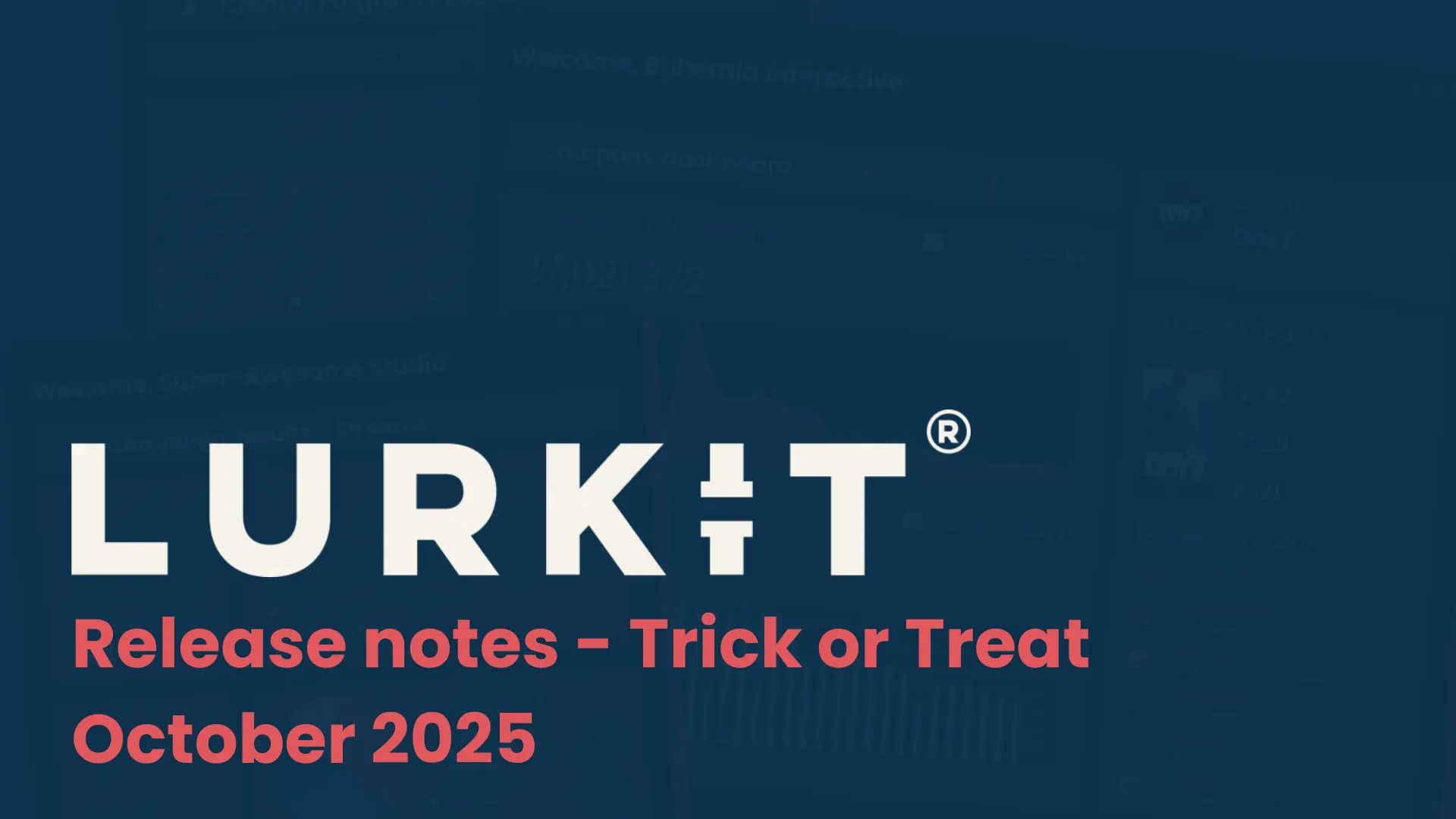Game Promotion part 1: Creating a winning marketing strategy
Creating a marketing strategy can be a daunting task, but it is important to remember that it’s a process. Those massive marketing campaigns take time, and there are many marketing strategies that can create momentum without extreme effort. Marketing campaigns can be as small as promoting screenshots from your title, and as large as in-depth media efforts. One of the best processes to create a marketing strategy is to start small, and scale as your game grows.
But the question still remains, how do you build a marketing strategy for your upcoming release? Standing out with a new title in a swarm of game releases is a challenge, so let’s start by doing the research and finding your marketing angle.
Why does game promotion matter?
Almost every guide talks about how to promote your game, and varying marketing strategies to succeed. However, it is important to spend a moment and remember why influencer marketing matters in the grand scheme of game promotions. While marketing in itself brings the product to the people, influencer marketing has a different objective in mind. Rather than simply showing off the good side of a product, it creates advocates for your release and harnesses public opinion as a swaying factor in the market.
It’s more than just ensuring that people see your game. Influencer marketing leverages the opinion of trusted gamers and uses that to push your title towards a relevant targeted audience. This precision found in influencer marketing and game promotion strategies in a general sense - is the key to a successful campaign.
What about word-of-mouth?
Even with a good game, or even a really good game, the world of video game marketing is a noisy and chaotic place. It’s hard for even the best titles to get noticed in the ongoing flood of release news, trailers, and spotlight events. While word-of-mouth might guarantee some sales, it’s not enough to rely on for a full large-scale marketing endeavor. To succeed in the industry, you have to cut through the noise and find new ways to excel above all the other titles.
That is, at least, the simple answer. The more complete answer has to do with discoverability and how various marketplaces push certain titles. Steam, App Store, Epic Games Store, and the Nintendo eShop are part-curated and part-algorithm driven resulting in titles being pushed towards players the shop thinks are interested. Meanwhile, every other title is automatically shuffled throughout the site under a series of complex equations to predict success. In the end, online stores tend to push the games they believe will make the most money, resulting in most tiles being pushed to the end of the line.
To make this process work, marketing professionals need to convince not only a person but also a computer that their game will sell. Generally speaking, you have to gain momentum and push your game forward before it even releases and prior to the impact of word-of-mouth. Once people are invested in your game, and the various stores are certain it will sell, then word-of-mouth may have the effect that most developers are looking for.
You need to do your research
Being aware of the market, your target audience, and your community is a key part of creating any marketing strategy. To avoid developing a title for a non-existing community, it’s important to do your research and find your niche. There are tons of tools out there, like trend.google.com, which can be used to find out what people are looking for and focusing on in your new community.
Focus groups and surveys used to be a traditional method for information gathering, but the Internet has made finding public opinion much easier. Online forums, Youtubers, and many other resources can help you find out what is lacking in the gaming industry and where your game can find its niche community.
On the other hand, if you already have a game then look at similar titles. Your competitors have already crafted an audience, and those players enjoy a similar experience. By looking into your competitor’s marketing strategy, you can save a ton of time and money. They have already done their research, created a plan, and their success and failures. With careful study, everything your competitors have done can aid your marketing strategy.
To learn from your competitors, start by making a list of everyone creating something similar to you. Look at user reviews, screenshots, and descriptions, and see how they are distributing keywords across their promotional materials. Remember that promoting your title is more than just release dates, it’s about crafting a narrative that guides players into your new creation.
What makes a marketing strategy successful?
Marketing strategies are traditionally made in sets of campaigns that work to push awareness of a product or service across multiple channels. The goal is to reach different audiences at different times to increase engagement overall. It tends to be a game of give-and-take, where your investment directly drives the amount of reward you will see from the campaign.
Strong marketing strategies start with solid goals and objectives. For example, setting the goal to ‘sell X amount of games in X amount of time’. It’s important to make these goals quantifiable, and it’s generally recommended to set them higher than minimal attainability. By making these goals track with specific metrics, known as KPIs or key performance indicators, you can figure out what works and what doesn't for your unique community.
Creating an efficient marketing strategy relies on having a solid plan that evolves and shifts with the community and bends with the campaign. After each objective is met, and each KPI goal is exceeded, find out how you can improve further. Did you meet your goal? If not, how can you do better next time? Continue to refine the process until you find a marketing strategy that works best for you.
Next week, we’ll take a look at how you can create engaging marketing tactics to promote your upcoming game before the official launch date.








